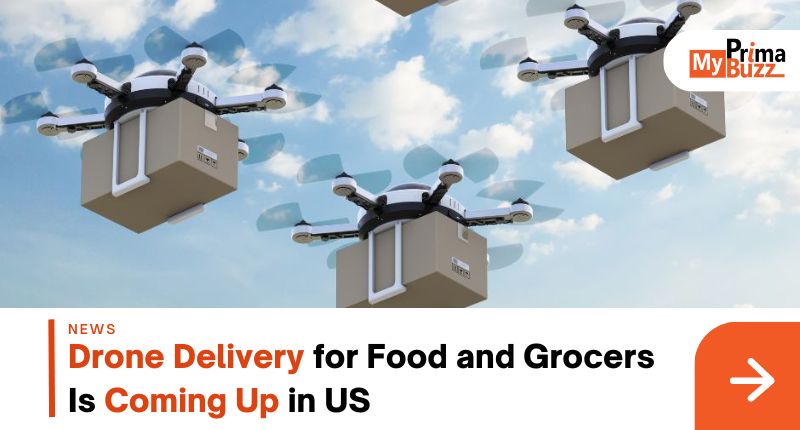Drone delivery of pizza and birthday gifts is still not the norm as tech leaders predict, but the service is already available in parts of the U.S. and government regulation is catching up.
Drone Delivery Service to Be Scale Up Pending Government Approval

Skeptics question whether drone delivery can be used on a large scale, but proponents argue they are safer and better for the planet and faster than bulky, greenhouse-gas-emitting delivery trucks.
The electric drone hovered the package above Tiffany Bokhari's house in Frisco, Texas and lowered in her hands minutes after she placed her order via a smartphone app.
“On the soda, you can even see condensation on it because it's still cold,” she told AFP after the Alphabet-owned Wing’s drone took off.
The service is new and still small in the region, but Wing provided a comparison of its up to 1,000 deliveries a day in part of Australia's Brisbane metropolitan area.
A handful of companies have or will have operations in parts of Texas, North Carolina or California by the end of the year, with suppliers including Israeli startup Flytrex, Wing and e-commerce giant Amazon.
In fact, Amazon founder Jeff Bezos unveiled a delivery drone in a 2013 interview with CBS, predicting that within five years air cargo will be regularly delivered from distribution centers to customers' doorsteps. However, things haven't been so smooth for a company that has permeated every aspect of modern life, from streaming and food shopping to healthcare.
Last year, one of Amazon's delivery drones crashed and caught fire during a test, another setback for the company's drone ambitions.
For others, the work has progressed more steadily, with Wing in April announcing what it called the “first commercial drone delivery service” in a major U.S. metro area: Dallas, Texas– Fort Worth.
Wing also offers delivery to some areas in Australia and Finland with a weight limit of around a kilogram.
Household items such as takeaway food, prescription drugs and toothbrushes are small, lightweight product types suitable for airborne, although drones have been delivering basic items such as medical supplies in parts of Africa for years.
In places where infrastructure is lacking, air transport is the best option as drone delivery of perishable substances such as blood makes sense, but some experts doubt it would work everywhere.
“Drones don't get tired. They don't try to text while driving. They don't drink and drive,” he told AFP. “You just get better service.”
Current challenge now is the security concerns that have been at the heart of the long process of gaining government approval to work in the United States.
On the other hand, Malaysia had established MDTAP30 to venture into the drone industry.

